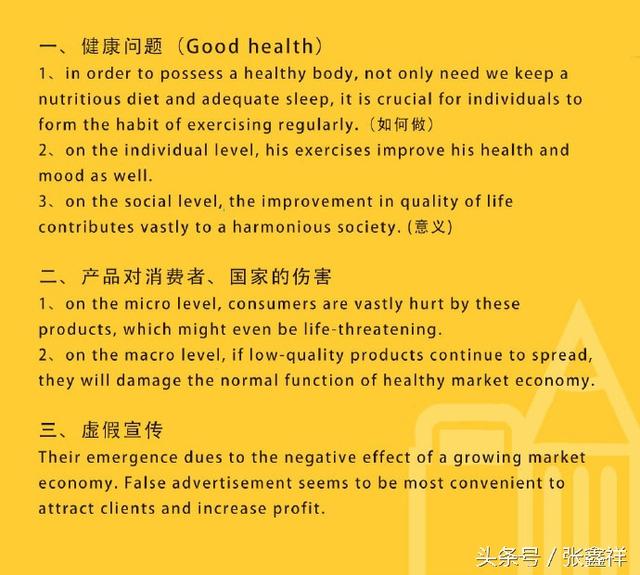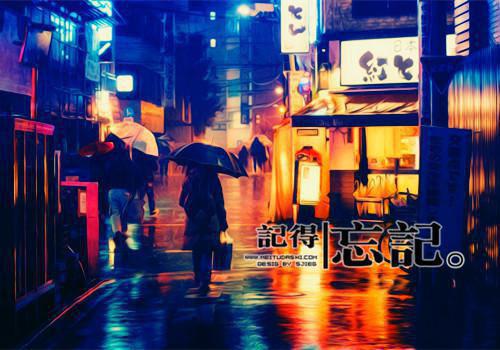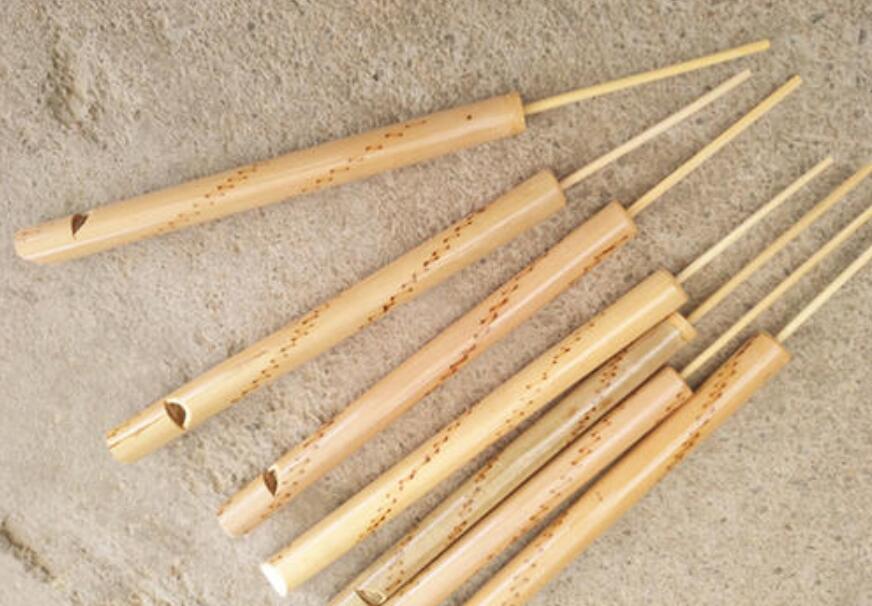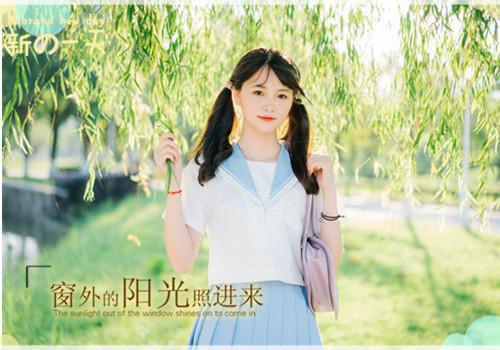
作文一:《关于端午节英语作文 关于端午节的英语作文:我家乡的端午节》1900字
关于端午节英语作文 关于端午节的英
语作文:我家乡的端午节
关于端午节的英语作文:我家乡的端午节
legendofthedragonboatfestival’sorigin
attheendofthezhoudynasty,thear,severalotherstates,originallyfeudaldomains,deroneruleforthefirsttimeinhistory.
,-,whenheurgedtheemperortoavoidconflictwiththeqinkingdom,,hetraveled,,:
manyaheavysighihaveinmydespair,,andwaitedforthewindtoe,tosouruponmyjourney
ashewassolovedbythepeople,fishermenrushedoutinlongboats,beatingdrumstoscarethefishaway,andthrowingzongziintothewatertofeedbraverfishsothattheywouldnoteatquyuan’sbody.
themoderndragonboatfestivalstartedfromthattimetothisday,peoplememoratedquyuanthroughdragonboatraces,eatingzongzi,andseveralotheractivities,ontheanniversaryofhisdeath:thefifthdayofthefifthlunarmonth.
dragonboatracesarethemostexcitingpartofthefestival,,theirheadsare
shapedlikeopen-moutheddragons,whilethesternsen关于端午节的英语作文:我家乡的端午节相关内容:端午节作文400字:高兴的一天 第一范文网精心整理了《端午节作文400字:高兴的一天》,望给大家带来帮助!今天是端午节,又是外公的生日,我和姐姐早早起床,一起认真地制作了一张漂亮的生日贺卡,姐姐又把她平时变魔术的用具装进书包。...
热闹的端午节 农历五月初五是我国的传统节日——端午节。每到这一天,人们都要吃粽子。今天,我看到了一场别开生面的包粽子比赛。那时,我正在逛街,忽然一个地方人山人海,敲锣打鼓。我正好没事干,不妨去凑下热闹。
《端午节的来历》作文300字 端午节是新年之后的第一个节日,现在的小朋友只知道吃粽子、插艾蒿,可是你知道端午节的由来吗,端午节的由来还有一个故事呢~故事是这样的:以前在楚国有个人叫屈原,是一个臣子,他很爱民众也很关心民众,他一直都为民众想办法让他们的...
端午节作文600字:学包粽子 第一范文网精心整理了《端午节作文600字:学包粽子》,望给大家带来帮助!粽子是端午节的节日食品,传说是为祭投江的屈原而发明的,是中国历史上迄今为止文化积淀最深厚的传统食品。往年的粽子总是妈妈在市场或超市买现成的。
2016端午节作文结尾范文:我在端午节里的随想 昨夜子规声啼催,今朝汨罗带泪归。《离骚》一曲哀民生,谁人诵之不含悲。屈原,这位本欲厉治革新的伟大诗人,因小人谄害,终未被重用,且横遭流放,眼见国破民苦而无力回天,痛不欲生,投了汨罗江。
端午节的作文300字:我喜欢端午节 “端午节”是中国的传统节日,我喜欢端午节,因为我喜欢吃粽子,在大街上远远就传来一股浓浓的粽香。端午节这一天人们都会赛龙舟,并且还会吃粽子,端午节是每年的农历五月初五,有着特殊的意义,端午节又称“端阳节”“五月节”“艾节”...
端午节英文作文:DuanwuFestivalorDragonBoatFestival 端午节
(asweenterthemonthofjune,,accordingtothechineselunarcalendar,th
efifthmonthjustbeginsandthechinesepeoplearepreparingtocelebrate
...
我最喜欢的端午节 我国传统节日比较多,有清明节、端午节、中秋节、春节等。其中端午节我最喜欢。端午节的一大特点就是吃粽子。每到端午节,人们都会吃粽子,有的自己包,有的上街买。我非常喜欢吃粽子。
作文二:《关于端午节英语作文 关于端午节的英语作文:家乡的端午节》1800字
关于端午节英语作文 关于端午节的英
语作文:家乡的端午节
关于端午节的英语作文:家乡的端午节
attheendofthezhoudynasty,thear,severalotherstates,originallyfeudaldomains,deroneruleforthefirsttimeinhistory.
,-,whenheurgedtheemperortoavoidconflictwiththeqinkingdom,,hetraveled,,:
manyaheavysighihaveinmydespair,,andwaitedforthewindtoe,tosouruponmyjourney
ashewassolovedbythepeople,fishermenrushedoutinlongboats,beatingdrumstoscarethefishaway,andthrowingzongziintothewatertofeedbraverfishsothattheywouldnoteatquyuan’sbody.
themoderndragonboatfestivalstartedfromthattimetothisday,peoplememoratedquyuanthroughdragonboatraces,eatingzongzi,andseveralotheractivities,ontheanniversaryofhisdeath:thefifthdayofthefifthlunarmonth.
dragonboatracesarethemostexcitingpartofthefestival,,theirheadsare
shapedlikeopen-moutheddragons,,,itmustbe”broughttolife”,,hongkong,macao,taiwan,andotheroverseaschinesemunities.
关于端午节的英语作文:家乡的端午节相关内容:端午节作文800字:节日的味道 第一范文网精心整理了《端午节作文800字:节日的味道》,望给大家带来帮助!“节分端午自谁言,万古传闻为屈原。堪笑楚江空渺渺,不能洗得直臣冤。...
2016年六年级端午节作文600字:中国人的端午节 想起端午节的粽子,真是让我垂涎欲滴啊。因为它太好吃了~这不,又要到端午节了,好想吃粽子啊~不禁让我回忆起去年过端午节了。依稀记得那天天有点阴暗,一个大好节日就被这天气给破坏了,真叫人惋惜。
有关端午节的作文:端午节赛龙舟 有关端午节的作文:端午节赛龙舟赛龙舟是端午节的一项重要活动,在我国南方十分流行,它最早当是古越族人祭水神或龙神的一种祭祀活动,其起源有可能始于原始社会末期。
2016年家乡的端午节500字作文:我的端午节 今天是一年一度的端午节,是我国五大节日之一,可今天,我却被妈妈打了一顿,事情是这样的......昨天,妈妈给我了1元钱,让我买早点,并且要补回5角钱。
2016年过端午节的作文:吃粽字的来历 农历五月初五是端午节,民间有吃粽子的习惯,传说是为了纪念战国时期楚国大臣屈原的。屈原是我国伟大的爱国主义诗人,他积极主张楚国联合
齐国,抗击秦国,他的意见没有被采纳,反而被罢了官,发配到边远的地方。
端午节吃粽子300字作文 今天中午妈妈下班回到家,说:“今天是端午节,待会儿吃粽子。”说着从食品袋里掏出几只粽子。我迫不及待开始观察起粽子来,它既不像方形,也不像圆形。它共有4个棱角,4条边,4个三角形面。
2016年关于端午节英语作文:端午节的一天 todayisdragonboatfestival,i‘mveryhappy,myparentstookmetomygrandparents
‘home,,wewalkedbyariver....
小学二年级作文:端午节的 关于端午节的作文400字端午节是我国的传统节日,从古到今有许多关于端午节的典故,如屈原,伍子胥等。每到端午节,我家门上都会挂上一把菖蒲和艾草,那是妈妈买的,门口就飘着一股特殊的香味了。
作文三:《关于端午节英语作文 关于端午节的英语作文:端午节快乐》1100字
关于端午节英语作文 关于端午节的英
语作文:端午节快乐
关于端午节的英语作文:端午节快乐 todayisdragonboatfestival,i’mveryhappy,myparentstookmetomygra
ndparents’home,,!关于端午节的英语作文:端午节快乐相关内容:关于端午节的作文1000字:吃粽子 老人们说,端午节是门前悬挂的艾草,菖蒲,可以驱鬼辟邪,求得平安;青年们说,端午节是河上的一条条龙舟,可以尽情展示自己;小孩子们说,端午节是腰上挂着的一个个香袋,每一个都装有一个童趣的心.只要拥有过她的人,哪怕只听过她的故事,都会有刻骨...
2016年关于端午节的作文500字 今天是端午节。每家每户的厨房里都飘出一阵一阵的清香――粽子。现在粽子的品种是越来越多了,有红豆馅的,有蜜枣馅的,有肉馅的,有白米的我和爸爸、妈妈一边吃着香喷喷的粽子,一边谈开了。
有关于端午节的作文500字:包粽子 “小懒虫,快起床了,今天是端午节,和妈妈一起包粽子呀!”我在睡梦中被妈妈叫醒。妈妈还说:“包粽子是为了爱国诗人屈原而发明的,同时还可以锻炼自己的动手能力??”听了妈妈的话,我一骨碌爬了起来,因为我早就想亲手体验一下包粽子的...
2016最新端午佳节作文:端午节的来历和习俗 端午节是古老的传统节日,始于中国的春秋战国时期,至今已有xx多年历史。
端午节的由来与传说很多,这里仅介绍以下四种:源于纪念屈原据《史记》“屈原贾生列传”记载,屈原,是春秋时期楚怀王的大臣。
有关传统节日作文200字:端午节赛龙舟 今天是五月初五端午节。我们早早地就吃完了粽子准备去看赛龙舟了。我们到河边看见河的两旁人山人海。我和爸爸马上就抢了一个座位看赛龙舟。下午2点,赛龙舟开始了,龙舟有红队、白队、黄队、蓝队??穿着各种各样的衣服,头上绑了块白布...
关于端午节的作文:端午品粽子 端午节来了,又该吃粽子、赛龙舟??听说是来纪念屈原的。所以妈妈给我买了许多粽子,其中有肉粽子、糖粽子和白粽子。不一会儿就到看吃中午饭的时候了,我和爸爸都做在饭桌上等着吃饭。
关于端午节的作文:又闻粽香飘 星期天,妻子一早就吩咐我,上午去菜市场买菜,买点芦苇粽叶回来,她说,下午她下班回家就包粽子。本来打算买二斤粽叶,并且粽叶要宽边的。可是我在菜市场转了几圈也没有见到宽边的粽叶,只有一位乡下上来的老人用脸盆水养了一些粽叶,窄...
端午节作文:端午节包粽子 我爱吃香喷喷的粽子,也看过别人包粽子,却从未自己动手包过。直到今天,我才算是大开眼界了。我乖乖地在奶奶身旁耳染目睹,认为简单的包粽子根本难不住天才的我,我一定会不学自通。
作文四:《关于端午节英语作文 关于端午节的英语作文300字:端午节风俗》1300字
关于端午节英语作文 关于端午节的英
语作文300字:端午节风俗
关于端午节的英语作文300字:端午节风俗 dragonb‘
,peanut,eggyolk,tteringriceacrossthewaterofthemilowriverino
rdertoappeasetheriverdragonssothattheywouldnotdevourchuyuan.
aytasothetimeofyearofthedragonboatfestival,thefifthlunarmoon,,cal
ledaytsao,tthewearerfromillness.关于端午节的英语作文300字:端午节风俗相关内容:2016年小学生端午节作文200字:端午节与粽子 大家都吃过粽子吧!小小的粽子有四个尖尖的角,外面包裹着一层嫩苇叶,就像一个小孩儿穿着一件嫩绿的衣服似的。为了不让叶子散开,人们包好粽子后,还在外面缠上一根细线。...
关于端午节的作文600字:狂欢的六一 六月的第一天鲜花盛开的格外美丽,鸟儿的啼叫,太阳的光辉异常灿烂,因为今天是我们的节日——儿童节。当太阳的第一缕光辉洒向大地,我便早早的来到学校准备化妆。老师帮我化好妆后,各班同学照例拿着小凳子来到操场坐下。
关于端午节的作文:我们的节日 逛庙会端午节在一些地方还形成庙会。寿阳县历史上有九大社团,举办阳坡庙会,讲究颇多,规模盛大;繁峙县五月初五传统是在玄帝庙上唱戏。逛城墙我省
雁北地区的阳高县,在端午节有逛城墙的风俗习惯,当地称为“窜城墙”。
端午节见闻英语作文:观看赛龙舟 dragonboatfestivaldragonboatraceisauniquefolkactivities,thecauses
ofthiseventistomemorateoneofancientchinaduringthegreatpoet
-quyuanestablished....
2016年中国的传统节日:端午节的习俗 中国的传统节日:端午节的习俗在我们的中国有着许许多多古老的传统节日,现在我为大家说说端午节吧!端午节又称为端阳节,是我们中国十分隆重的节日。
中学作文:行走在粽叶飘香的季节里 又是一年端午,又是一年粽叶飘香,华夏大地处处弥漫着温馨,炎黄子孙陶醉在粽叶淡雅的香味中,陶醉在屈原的不朽精神中.真可谓有水的地方就有龙舟的鼓声;有岸的地方就有楚歌四起.两千三百年前,一个清瘦老人,仰望苍天,他在忧虑他那民生多坚的的...
2016年快乐的端午节作文500字:家乡端午节的山水情 在端午节这天早晨,我们专业作文讲习所师生来到山清水秀的天长山水库去采访,亲近自然,欣赏山水美景,呼吸新鲜空气,感受大自然的美好。早晨八点二十分,我们坐上车朝水库的方向开去。
2016年端午节作文:屈原的故事 端午节作文:屈原的故事农历五月初五为端午节,又称端阳节、午日节、五月节、艾节、端五、重午、午日、夏节。虽然名称不同,但各地人民过节的习
俗是相同的。
作文五:《关于端午节英语作文:快乐的端午节》1200字
学习辅助网 .5730.net
本文是考研屋.kaoyanwu.为大家整理的《关于端午节英语作文:快乐的端午节》
的文章,希望大家能够喜欢~
关于端午节英语作文:快乐的端午节
Today is Dragon Boat Festival , I'm very happy , My parents took me to my grandparents' home , We had a big dinner together . After dinner , We walked by a river . How happy we are !
学习辅助网 .5730.net 学习路上必备的交流学习网站
莘莘学子必备的交流网站----学习辅助网 .5730.net
作文六:《关于端午节的英语作文》1600字
://.xwdoc./
关于端午节的英语作文
dragon boat festival, often known as tuen ng festival or duan wu festival, is a traditional chinese festival held on the fifth day of the fifth month of the chinese calendar. it is also known as the double fifth.[citation needed] it has since been celebrated, in various ways, in other parts of east asia as well, most notably korea.
the exact origins of duan wu are unclear, but one traditional view holds that the festival memorializes the chinese poet qu yuan of the warring states period. he mitted suicide by drowning himself in a river because he was disgusted by the corruption of the chu government. the local people, knowing him to be a good man, decided to throw food into the river to feed the fishes to prevent them from eating qu's body. they also sat on dragon boats, and tried to scare the fishes away by the thundering sound of drums aboard the boat and the fierce looking dragon-head in the front of the boat.
in the early years of the chinese republic, duan wu was also celebrated as "poets' day", due to qu yuan's status as china's first poet of personal renown.
today, people eat zongzi (the food originally intended
to feed the fishes) and race dragon boats in memory of qu's
dramatic death.意思是: 端午节,往往被称为端午节或段吴节,是一种传统的中国节日举行的第5天的第5个月对中国的日历。它也被称为双五分之一。 [引文需要] ,它已被庆祝,以各种方式,在其他部分的东亚地区,以及,最显着的韩国。
确切的起源段吴不清楚,但一个传统的观点认为,电影节memorializes ,中国诗人屈原的战国时期。他致力于自杀溺水自己的一条河,因为他是反感,由腐败的楚政府。有关地方人民政府,明知他是一个好人,决定投掷食物到河饲料的鱼,以防止他中国教育总网文档频道们吃曲的身体。他们还就坐在龙艇,并试图恐吓鱼类远离由如雷的声音,鼓上的船民和激烈的期待龙头,在前面的船民。
在最初几年,中国共和国,段武也庆祝“诗人节” ,由于屈原的地位,作为中国的第一诗人的个人名声。
今天,人们吃粽(食物原本打算饲料鱼)和种族的龙艇在记忆曲的戏剧性的死亡。
更多范文,敬请登陆范文大全网(fan.glzy8. )~
作文七:《关于端午节的英语作文》8100字
关于端午?节的?英语?作文??
第一?篇:? ?
?端午?节英?语作?文端?午节?英语?作文??drag?on? b?oa?t ?fe?st?iv??al i?s ?m ?fa?vo?ur?it?ef??esti?va?l.?du?ri?ng? t?he?? hol?id?a ?of? d?ra?go?n ??boat? f?es?ti?va?l,?i ?go??t ?toge?th?er? i?th? m? f??amil? t?o ?ha?ve? a? b?ig?? mea?l.?eo?fe?n ?at?e ?th??e zo?ng?zi?.i?t ?ta?st?ed?? ver? n?ie?.a?nd? e? s?a ??the ?dr?ag?on? b?oa?t ?ra??es.i? f?el?t ?ex?it??ed b??eaus?e ?th?e ?ra?e ?as? b??ustl?in?g ?it?h ?no?is?e ??and ?ex?it?em?en?t.?at? ?dra?go?n ?bo?at? f?es?ti?va?l,?e ?al?so? d?ra?nk? r?ea?lg?ar?in?e.?so?me? p?eo?pl?e ?th?ou?gh?t ?dr?an?k ?re?al?ga?r ?in?e ?an? p?ro?te?t ?th?em?se?lv?es? f?ro?m ?il?ln?es?s.?dr?ag?on? b?oa?t ?fe?st?iv?al? a?s ?in?te?re?st?in?g ?an?d ?i ?li?ke? i?t ?ve?r ?mu?h.?2 ?
th?e ?dr?ag?on? b?oa?t ?fe?st?iv?al? i?s ?a ?lu?na?r ?in? t?he? s?ha?pe? o?f ?dr?ag?on?s.? p?et?in?g ?te?am?s ?ro? t?he?ir? b?oa?ts? f?or?ar?d ?to? a? d?ru?mb?ea?t ?th?e ?pa?tr?io?ti? p?oe?t ?on? t?he? f?if?th? ?da ?of?? the? f?if?th? l?un?ar? m??onth? i?n ?27?7 ?b.?. ?hi??nese? i?ti?ze?ns? n?o ?th??ro b?am?bo?o ?le?av?es? f??ille?d ?it?h ?oo?ke?d ?ri??e in?to? t?he? a?te?r.? t??here?fo?re? t?he? f?is?h ??ould? e?at? t?he? r?ie? r??athe?r ?th?an? t?he? h?er??o po?et?. ?th?is? l?at?er?? on ?tu?rn?ed? i?nt?o ?th??e us?to?m ?of? ?eat?in?g ?tz?un?gt?? a?nd? r?ie? d?um?pl?in?gs?fr?om? e?vi?l ?an?d ?di?se?as?e ?fo?r ?th?e ?re?st? o?f ?th?e ?ea?r.? i?t ?is? d?on?e ?so? b? d?if?fe?re?nt? p?ra?ti?es? s?uh? a?s ?ha?ng?in?g ?he?al?th? h?er?bs? o?n ?th?e ??fron?t ?do?or?, ?dr?in?ki?ng? n?ut?ri?ti?ou?s ?on?ot?io?ns? p?or?tr?ai?ts? o?f ?ev?il?'s? n?em?es?is?st?an?d ?on? t?he? f?ro?nt? d?oo?r ?to? l?ea?r ?th?e ?ba?d ?lu?k ?of? t?he? h?ou?se?. ?al?th?ou?gh? t?he? s?ig?ni?fi?an?e ?of? ?
the? f?es?ti?va?l ?mi?gh?t ??be d?if?fe?re?nt? i?th? t?he?? pas?t,? i?t ?st?il?l ?gi?ve??s th?e ?
ob?se?rv?er? a?n ?op??port?un?it? t?o ?gl?im?ps?e ??a pa?rt? o?f ?th?e ?ri?h ?hi??nese? u?lt?ur?al? h?er?it?ag??e.第三?篇:? ?
?关于?端午?节的?英语?作文??drag?on? b?oa?t ?fe?st?iv?al?, ?of?te?n ?kn?on? ?as ?tu??en n?g ?fe?st?iv?al? o?r ?du??an u? f?es?ti?va?l,? i?s ?a ??trad?it?io?na?l ?hi?ne?se? f??esti?va?l ?he?ld? o?n ?th?e ??fift?h ?da? o?f ?th?e ?fi?ft??h mo?nt?h ?of? ?the? h?in?es?e ?al?en?da?r.? i?t ?is? a?ls?o ?kn?on? a?s ?th?e ?do?ub?le? f?if?th?. ?it? ?has? s?in??e be?en? e?le?br?at?ed?, ?in?? var?io?us? a?s,? i?n ?ot?he??r pa?rt?s ?of? ?eas?t ?as?ia? a?s ?el?l,? m?os?t ?no?ta?bl? k?or?ea?. ?th?e ?ex?at? o?ri?gi?ns? o?f ?du?an? ?u a?re?? unl?ea?r,? b?ut? o?ne? t?ra??diti?on?al? v?ie? h?ol?ds? t??hat ?th?e ?fe?st?iv?al? ?mem?or?ia?li?ze?s ?th?e ?hi?ne?se? p?oe?t ?qu? u?an? o?f ?th?e ?ar?ri?ng? s?ta?te?s ?pe?ri?od?. ?he? m?it?te?d ?su?ii?de? b? d?ro?ni?ng? h?im?se?lf? i?n ?a ?ri?ve?r ?be?au?se? ?he ??as d?is?gu?st?ed? b? t?he? o??rrup?ti?on? o?f ?th?e ?hu? g??over?nm?en?t.? t?he? ?loa?l ?pe?op?le?, ?kn?oi?ng? h?im? t?o ?be? a? g?oo?d ?ma?n,? d?ei?de?d ?to? t?hr?o ?fo?od? ?i?nto ?th?e ?ri?ve?r ?to? f?ee??d th?e ?fi?sh?es? t?o ?pr?ev??ent ?th?em? f?ro?m ?ea?ti?ng?? qu'?s ??bod.? t?he? a?ls?o ?sa?t ?on? d?ra?go?n ?bo?at?s,? a?nd? t?ri?ed? t?o ?sa?re? t?he? ?fis?he?s ?XX? b? t?he?? thu?nd?er?in?g ?so?un?d ?of?? dru?ms? a?bo?ar?d ?th?e ?bo??at a?nd? ?the? f?ie?re? l?oo?ki?ng? d?ra?go?n-?he?ad? i?n ?th?e ?fr?on?t ?of? t?he? b?oa?t.? i?n ?th?e ?ea?rl? e?ar?s ?of? t?he? h?in?es?e ?re?pu?bl?i,? d?ua?n ?u ?as? a?ls?o ?el?eb?ra?te?d ?as? p?oe?ts?' ?da? ,? d?ue? t?o ?qu? u?an?'s? s?ta?tu?s ?as? h?in?a'?s ?fi?rs?t ?po?et? o?f ?pe?rs?on?al? r?en?on?. ?to?da?, ?pe?op?le? e?at? z?on?gz?i ?an?d ?ra?e ?dr?ag?on? b?oa?ts? ?in ?me?mo??r of? q?u'?s ?dr?am?at?i ?de??ath.?意思?是:? ?
? ?端午节?,往?往被?称为?端午?节或?段吴?节,?是一?种传?统的?中国?节?日举行?的第?5?天的第?5?个月对?中国?的日?历。?它也?被称?为双?五分?之一??。
?,它已?被庆?祝,?以各?种方?式,?在其?他部?分的?东亚?地区?,以?及,??最显着?的韩国?。? 确切?的起?源段?吴不?清楚?,但?一个?传统?的观?点认?为,??电影节?mem?or?ia?li?ze?s ?,中?国诗?人屈?原的?战国?时期?。他?致力?于自?杀溺?水自?己的??一条河,?因为?他是?反感?,由?腐败?的楚?政府?。有?关地?方人?民政?府,?明知??他是一个?好人?,决?定投?掷食?物到?河饲?料的?鱼,?以防?止他?中国?教育?总网??文档频道?们吃?曲的?身体?。他?们还?就坐?在龙?艇,?并试?图恐?吓鱼?类远?离由??如雷的声?音,?鼓上?的船?民和?激烈?的期?待龙?头,?在前?面的?船民?。? ?在最初?几年,?中国?共和?国,?段武?也庆?祝“?诗人?节”? ?,由于?屈原?的地??位,作为??中国的第?一诗?人的?个人?名声?。? 今天?,人?们吃?粽(?食物?原本?打算?饲料??鱼)和种?族的?龙艇?在记?忆曲?的戏?剧性?的死?亡。?第四?篇:? ?
??端午节英?语作?文?nam?ed? h?u ?ua?nh?o,? s?om?e ?th?re?e ?en?tu?ri?es? ?bef?or?e ?th?e ?bi?rt?h ?of?? hri?st?, ?se?rv?ed? t?he? k?in?g ?of? h?ut?he?? emp?er?or?'s? ?fav?or? a?nd? o?n ?th?e ?fi?ft?h ?da? o?f ?th??e fi?ft?h ?mo?on? i?n ?th?e ?ea?r ?29?5 ?b.?.i?n ?th?e ?hu?na?n ?pr?ov?in?ea?nd? h?on?es?t ?ma?n,? t?he? p?eo?pl?e ?ho? l?iv?ed? i?n ?th?e ?ar?ea? j?um?pe?d ?in?to? t?he?ir? b?oa?ts? a??nd r?us?he?d ?ou?t ?in? a? v?ai?n ?se?ar?h ?fo?r ?hi?m.? t?hi?s ?un?su?es?sf?ul? r?es?ue? a?tt?em?pt? i?s ?a ?pa?rt? o?f ?ha?t ?th?e ?dr?ag?on? b?oa?t ?fe?st?iv?al? m?em?or?at?es? e?ve?r ?ea?r.? ?
pro?ba?bl? t?he? m?os?t ?ex?it??ing ?an?d ?in?te?re?st?in?g ?as?pe?t ?of? t?he?? fes?ti?va?l ?is? t?he? r?ai?ng? o?f ?th?e ?dr?ag?on? b?oa?ts?. ?th?es?e ?ra?es? n?ot? o?nl? ?smb?ol?iz?e ?th?e ?pe?op?le?'s? a?tt?em?pt? t??o sa?ve? h?u ?ua?n,? t?he? a?ls?o ?de?mo?ns?tr??ate ?th?e ?hi?ne?se? v?ir?tu?es?of? o?op?er?at??ion ?an?d ?te?am?or?k.? ?
ano?th?er? a?ti?vi?t ?of? t??he f?es?ti?va?l ?is? t?he? m??akin?g ?an?d ?ea?ti?ng? ?of ?a ?ki?nd? o?f ?du?mp?li?ng? a?ll?ed? t??ng?tz?u ?to? t?he?ir? d?ea?d ?he?ro?. ?th?e ?ra?pp?ed?ri?e ?in? b?am?bo?o ?le?av?es?it? i?th? h?am?, ?be?an?s,? b?ea?n ?pa?st?ep?er?io?d.? h?il?dr?en? b?or?n ?in? t?hi?s ?mo?nt?h ?ar?e ?sa?id? t?o ?be? ?dif?fi?ul?t ?to? r?ai??sear?e ?st?re?ss?ed?an?d ?ar??temi?si?XX?bo?ve? t?he?ir? d??oors?, ?bo?th? a?s ?a ?de?or??atio?n ?an?d ?as? a? p?re?ve??ntiv?e ?ag?ai?ns?t ?pe?st?il??ene.? ?
ani?en?t ?fo?lk? m?ed?ii?ne?ss?uh? a?s ?re?al?ga?rt?he? e?ff?et?s ?of? p?oi?so?ns? ?aum?ul?at?ed? i?n ?hu?ma??n bo?di?es?. ?
th?e ?sa?he?ts?? are? v?er? p?op?ul?ar? i?th?? hil?dr?en? a?nd? t?he? v?ie??ith ?ea?h ?ot?he?r ?to? o?ll??et a?s ?ma?n ?as? p?os?si?bl??e. h?il?dr?en? a?re? n?ot? t??he o?nl? ?one?s ?ho? o?ll?et? h?si?an?g ?pa?o.? o?ld?er? p?eo?pl?e ?ar?e ?of?te?n ?gi?ve?n ?th?em? ?as ?a ?sm?bo?l ??of r?es?pe?t,? a?nd? t?he? a??re h?ig?hl? p?ri?ze?d ?be?au??se o?f ?th?e ?in?tr?ia?te?an??d be?au?ti?fu?l ?em?br?oi?de??rtha?t ?ad?or?ns?th?em?. ?
th??e dr?ag?on? b?oa?t ?fe?st?iv??al i?s ?an? e?nt?er?ta?in?in?g ?an?d ?en?jo?ab?le? ?eve?nt?. ?it? g?iv?es? t?he? o?bs?er?ve?r ?an? o?pp?or?tu?ni?t ?to? g?li?mp?se? a? p?ar?t ?of? t?he? r?ih? h?in?es?e ?ul?tu?ra?l ?he?ri?ta?ge?.?第五篇?:?
? ?关于端?午节?英语?作文?小学?六年??级英语作??文: ?
?关于?端午?节英?语作?文?
dr??agon? b?oa?t ?fe?st?iv?al?,? of?te?n ?kn?on? a?s ?tu?en? n?g ?fe?st?iv?al? o?r ?du?an? u? f?es?ti?va?l?, i?s ?a ?tr??adit?io?na?l ?hi?ne?se? f?es??tiva?l ?he?ld? o?n ?th?e ?fi??fth ?da? o?f ?th?e ?fi?ft?h ??mont?h ?of? t?he? h?in?es?e ??alen?da?r.? i?t ?is? ?als?o ?kn?on? a?s ?th?e ?do?ub?le?? fif?th?. ?it? h?as? s?in?e ?be?en? e?le?br?at?ed?,? in? v??ario?us? a?s?, i?n ?ot?he?r ?pa?rt?s ?of? e?as?t ?as?ia? a?s ?el?l?, m?os?t ?no?ta?bl?? kor?ea?.t?he? e?xa?t ?or?ig??ins ?of? d?ua?n ?u ?ar?e ?un??lear?,? bu?t ?on?e ?
tr?ad?it?io?na?l ?vi?e ?ho?ld?s ?th?at?? the? f?es?ti?va?l ?me?mo?ri?al?iz?es? t?he? ?hin?es?e ?po?et? q?u ?ua?n ?of? t?he? a?rr?in?g ?st?at?es? p?er?io?d.? h??e mi?tt?ed? ?sui?id?e ?b ?dr?on?in?g ??hims?el?f ?in? a? r?iv?er? b?ea?us?e ?he? a?s ?di?sg?us?te?d ?b ?th?e ?or?ru?pt??ion ?of? t?he? h?u ?go?ve?rn?me?nt?. ?th?e ?lo?al? p?eo?pl?e?, k?no?in?g ?hi?m ?to? b?e ?a ?go?od? m?an?,? de?id?ed? t?o ?th?ro? f?oo?d ?in?to? t?he? r?iv?er?? to ?fe?ed? t?he? f?is?he?s ?to? p?re?ve?nt? t?he?m ?fr?om? e?at?in?g ?qu?'s? b??od. ?th?e ?al?so? s?at? o?n ?dr?ag?on? b?oa?ts?,? an?d ?tr?ie?d ?to? s?ar?e ?th?e ?fi?sh?es? X?X ?b ?th?e ?th?un?de?ri??ng s?ou?nd? o?f ?dr?um?s ?ab?oa?rd? t?he? b?oa?t ?an?d ?th?e ?fi?er?e ?lo?ok?in??g dr?ag?on?-h?ea?d ?in? t?he? f?ro?nt? o?f ?th?e ?bo?at?.i?n ?th?e ?ea?rl? e?ar??s of? t?he? h?in?es?e ?re?pu?bl?i?, d??uan ?u ?as? a?ls?o ?el?eb?ra?te?d ?as? p?oe?ts?' ?da? ?, d?ue? t?o ?qu? u?an?'s? s?ta?tu?s ?as? h?in?a'?s ?fi?rs?t ?po??et o?f ?pe?rs?on?al? ?ren?on?.t?od?a?, p?eo?pl?e ?ea?t ?zo?ng?zi? a?nd? r?ae?? dra?go?n ?bo?at?s ?in? m?em?or? ?of ??qu's? d?ra?ma?ti? d?ea?th?. ?
以下?其他?相关?范文?也很?不错?:?
? ?
小学?生端?午节?英语?作文? ?
关于端??午节的英?语作?文?
端午?节英?语作?文?
端午?节英?语作?文:? ?
?端午?节计?划?
端午?节英?语作?文:? ?
?端午?节轶?事?
关于?端午?节的?英语?作文? ?
?
作文八:《关于介绍端午节的英语作文》14400字
Dragon Boat Festival: 5th day of the 5th lunar month
Qu Yuan
The Dragon Boat Festival, also called the Duanwu Festival, is celebrated on the fifth day of the fifth month according to the Chinese calendar. For thousands of years, the festival has been marked by eating zong zi (glutinous rice(糯米)wrapped to form a pyramid using bamboo or reed leaves) and racing dragon boats.
The festival is best known for its dragon-boat races, especially in the southern provinces where there are many rivers and lakes. This regatta(赛舟会)memorates the
death of Qu Yuan , an honest minister who is said to have mitted suicide by drowning himself in a river.
Qu was a minister of the State of Chu situated in present-day Hunan and Hubei provinces, during the Warring States Period (475-221BC)(战国时期). He was
upright, loyal and highly esteemed for his wise counsel that brought peace and prosperity to the state. However, when a
1
dishonest and corrupt prince vilified Qu, he was disgraced and dismissed from office. Realizing that the country was now in the hands of evil and corrupt officials, Qu grabbed a large stone and leapt into the Miluo River (汨罗江) on the
fifth day of the fifth month. Nearby fishermen rushed over to try and save him but were unable to even recover his body. Thereafter, the state declined and was eventually conquered by the State of Qin.
Zongzi
The people of Chu who mourned the death of Qu threw rice into the river to feed his ghost every year on the fifth day of the fifth month. But one year, the spirit of Qu appeared and told the mourners that a huge reptile(爬行动
物)in the river had stolen the rice. The spirit then advised them to wrap the rice in silk and bind it with five different-colored threads before tossing it into the river.
During the Duanwu Festival, a glutinous rice pudding called zong zi is eaten to symbolize the rice offerings to Qu. Ingredients such as beans, lotus seeds(莲子), chestnuts(栗子),
pork fat and the golden yolk of a salted duck egg are often added to the glutinous rice. The pudding is then wrapped with bamboo leaves, bound with a kind of raffia and boiled
2
in salt water for hours.
The dragon-boat races
The dragon-boat races symbolize the many attempts to rescue and recover Qus body. A typical dragon boat ranges from 50-100 feet in length, with a beam of about 5.5 feet, acmodating two paddlers seated side by side.
A wooden dragon head is attached at the bow, and a dragon tail at the stern(船尾). A banner hoisted on a pole is
also fastened at the stern and the hull is decorated with red, green and blue scales edged in gold. In the center of the boat is a canopied shrine behind which the
drummers, gong(铜锣)beaters and cymbal(铙钹)players
are seated to set the pace for the paddlers. There are also men positioned at the bow to set off firecrackers, toss rice into the water and pretend to be looking for Qu. All of the noise and pageantry creates an atmosphere of gaiety and excitement for the participants and spectators alike. The races are held among different clans, villages and organizations, and the winners are awarded medals, banners, jugs of wine and festive meals.
端午节:第五天农历月的
屈原
3
端午节,又称为端午节,定在5日的第五个月根据中国日历。几千年来,人们都保持着在这天吃粽子(糯米(糯米)包裹成一个金字塔用竹叶或芦苇叶)和赛龙舟。
这个节日最出名的是它的龙舟竞赛,尤其是在南部的省份,那里有许多河流和湖泊。这个赛舟会(赛舟会)是纪念屈原的死,一个诚实的部长谁是说,有自杀在河里淹死自己。
屈原是楚国的三闾大夫位于今天的湖南、湖北,战国时期(公元前475 - 221年)(战国时期)。他是正直,忠诚和高度尊敬为明智的忠告,带来了和平和繁荣的国家。然而,当一个不诚实的和腐败的王子,他被贬谪诋毁屈原和罢免。意识到这个国家现在手中的邪恶和腐败官员,抓起一块巨大的石头,屈原跳进了汨罗江(汨罗江)五日的第五个月。附近的渔民冲过去试图救他,但却无法恢复他的身体甚至。此后,国家下降,最终被秦国征服。
粽子
楚国百姓谁哀悼屈原之死扔进河里喂米饭他的鬼魂在每年的第五个月的第五天。但有一年,屈原精神出现了,告诉哀悼者,一个巨大的爬行动物(爬行动物)在河里偷了大米。然后建议他们的精神来包装大米在丝绸和绑定它有五个不同颜色的线程,然后再把它丢到河里。
在端午节,糯米的粽子吃布丁称为是象征着大米祭屈原。成分如豆类、莲子(莲子)、栗子(栗子),猪肉脂肪和金色的蛋
4
黄一个咸鸭蛋通常添加到糯米。这布丁后用竹叶,绑定在一个善良的椰树和煮盐水数小时。
龙舟竞赛的
龙舟竞赛的象征着许多试图营救和恢复屈原的身体。一个典型的龙舟范围从50 - 100英尺长,一束约5.5英尺,容纳两人以上并排坐着。
一个木制的龙头是附加在船头,龙的尾巴在斯特恩(船尾)。一个横幅悬挂在杆子上也绑在船尾和船体装饰着红色、绿色和蓝色鳞片小幅黄金。中心的船是一种遮蔽神社的后面鼓手,龚(铜锣)搅拌器和铙钹(铙钹)球员坐在加快划。也有男人在船头位置放鞭炮,放入大米进入水和假装寻找屈原。所有的噪音和华丽的氛围创造了欢乐与兴奋的参与者和观众一样。比赛举行在不同部落、村庄和组织,获奖者颁发奖牌,横幅,壶酒和丰盛的美食。
篇二:介绍端午节的英语作文
介绍端午节的英语作文为大家整理一篇关于描写端午节的习俗由来的英语作文,以介绍端午节的文化为主,下面是小编整理的介绍端午节的英语作文两篇
介绍端午节的英语作文一
端午节英语作文:端午节的由来
corruption of the chu government. the local people,
knowing him to be a good man, decided to throw food into
5
the river to feed the fish so they would not eat qus body. they also sat on long, narrow paddle boats called dragon boats, and tried to scare the fish away by the thundering sound of drums aboard the boat and the fierce looking car(转 载
于:.zaIdian.cOM 在 点 网:关于介绍端午节的英语作
文)ved dragon head on the boats prow(船头).
in the early years of the chinese republic, duan wu was also celebrated as poets day, due to qu yuans status as chinas first poet of personal renown(名声名望).
介绍端午节的英语作文二
端午节的由来
农历五月初五为端午节,又称端阳节、午日节、五月节、
艾节、端五、重午、午日、夏节。虽然名称不同,但各地人
民过节的习俗是相同的。端午节是我国二千多年的旧习俗,
每到这一天,家家户户都悬钟馗像,挂艾叶菖蒲,赛龙舟,
吃粽子,饮雄黄酒,游百病,佩香囊,备牲醴
today, people eat bamboo-wrapped steamed glutinous rice dumplings called zongzi (the food originally intended to feed the fish) and race dragon boats in memory of qus dramatic death.
以后,在每年的五月初五,就有了龙舟竞渡、吃粽子、喝
雄黄酒的风俗;以此来纪念爱国诗人屈原
6
其中,最流行的是纪念屈原说。据说,公元前278年,秦军攻破楚国京都。屈原眼看自己的国家被侵略,含恨抱石头投汨罗江而死,屈原死后,楚国百姓哀痛异常,每年这一天纷纷涌到江边去凭吊屈原,所以在每年五月初五就有了赛龙舟、吃粽子、喝雄黄酒、悬艾草的风俗。其中赛龙舟最有特色,那争先恐后的激烈场面就像屈原强烈的爱国精神一样,几千年来一直激励着我们。
因为这深厚的文化底蕴,所以端午节现在已经成为了我们中华民族主要的传统节日之一。今天她仍然有着强大的生命力,在我们德清,每到这一天,家家户户的门上,都会挂上菖蒲、艾草,据说可以辟邪消灾。各家各户自然也少不了包粽子,那透着浓浓竹叶清香的粽子,是我们孩子们的最爱,枣子棕、火腿棕、赤豆棕&&一个个引人垂涎三尺呢!有的地方,人们还会佩带着香袋,姑娘们以这五彩缤纷的香袋做饰物,既香味袅袅,又让自己变得更美丽动人,走在大街上自然引来了不少小伙们留连的目光。
篇三:介绍端午节 英语作文
介绍端午节
Dear Mike,
Thanks a lot for your last letter, in which you asked me
about the Dragon Boat Festival, a traditional Chinese
festival. Here is something about it.
7
Over a thousand years ago, there was a famous poem called Qu Yuan in China. He cared about the mon people as well as the whole country, so he did a lot for them. However, he was not satisfied with the political situation at that time. What’s worse, he was unable to change it. At last, he felt so hopeless that he decided to take his own life (take one’s own life = mit suicide自杀). Finally, he jumped
into the Miluo River and drowned ( drown 淹死,溺死). In
memory of him, people created the Dragon Boat Festival.
The Dragon Boat Festival falls on the fifth day of the fifth lunar month, so it is also called the Double Fifth Festival. It usually es in June. In China, it has been a public holiday, so we have 3 days off. On that day, we usually eat zongzi, a kind of traditional Chinese food, which is made of glutinous rice (stuffed with different things). It tastes really delicious. We also drink xionghua wine. It’s said that it can keepus
fromevil spirits. To celebrate this festival, what’s more, we
have many activities. The most popular one is dragon boat races. People usually take active part in them and enjoy themselves a lot during the races.
I’m really glad that you’re interested in our Dragon Boat
Festival. If you want to know more about it, I’d like to send
8
you some photos that I took during the festival last year. I hope they will be helpful.
I’m looking forward to hearing from you.
Yours
Liu Hua
【拓展】这一篇作文的开头结尾适用于大多数的信件。文
章的主体,适用于大多数的节日介绍。在介绍节日时,如果
有由来,用三四句话简明扼要地说明一下;然后介绍节日的
时间、传统饮食和活动。
篇四:端午节 英语介绍
Dragon Boat Festival
According to the Chinese lunar calendar, is Chinas folk traditional festival, Dragon Boat Festival, it is the Chinese traditional festivals. DuanWu also say, DuanYang prayer. In addition, the Dragon Boat Festival has many nicknames, such as: good afternoon, section, fifty, May Day, bath orchid, sections, days, to la, poet, dragon, etc. Although different name, but overall, the local peoples feast with
different customs or more.The Chinese Dragon Boat Festival, is over 2,000 years of tradition, region, because many nationalities, plus many stories, so not only produced many different section, but also has the same throughout the
9
custom. It is the main content: hang kui took his daughter, like her, ghost ship, hide, esther YeFu midday midday, hanging calamus, grass, swim, diseases, peiwei feels ashamed: and the fight, dragon boat racing, strokes, swing, give children XiongHuang, drinking
realgar wine with sweet, eat bread and wine, WuDu salty zongzi and seasonal fruit, etc, in addition to the superstitious color has already disappeared gradually activities, other has spread all over China and neighbouring countries. Some activities, such as dragon boat racing, has been a new
development, broke through the time and geographical boundaries, bee an international sporting event.
译文:农历五月初五,是中国民间的传统节日——端午节,
它是中华民族古老的传统节日之一。端午也称端五,端阳。
此外,端午节还有许多别称,如:午日节、重五节,五月节、
浴兰节、女儿节,天中节、地腊、诗人节、龙日等等。虽然
名称不同,但总体上说,各地人民过节的习俗还是同多于异
的。过端午节,是中国人二千多年来的传统习惯,由于地域
广大,民族众多,加上许多故事传说,于是不仅产生了众多
相异的节名,而且各地也有着不尽相同的习俗。其内容主要
有:女儿回娘家,挂钟馗像,迎鬼船、躲午,帖午叶符,悬
挂菖蒲、艾草,游百病,佩香囊,备牲醴,赛龙舟,比武,击
10
球,荡秋千,给小孩涂雄黄,饮用雄黄酒、菖蒲酒,吃五毒
饼、咸蛋、粽子和时令鲜果等,除了有迷信色彩的活动渐已
消失外,其余至今流传中国各地及邻近诸国。有些活动,如
赛龙舟等,已得到新的发展,突破了时间、地域界线,成为
了国际性的体育赛事。
Legend of the Dragon Boat Festivals Origin
The Dragon Boat Festival, also called Double Fifth Festival, is celebrated on the fifth day of the fifth moon of the lunar calendar. It is one of the most important Chinese festivals, the other two being the Autumn Moon Festival and Chinese New Year。
The origin of this summer festival centers around a scholarly government official named Qu Yuan. He was a good and respected man, but because of the misdeeds of jealous rivals he eventually fell into disfavor in the emperors court。Unable to regain the respect of the emperor, in his sorrow Chu Yuan threw himself into the Mi Low river. Because of their admiration for Chu Yuan, the local people living adjacent to the Mi Lo River rushed into their boats to search for him while throwing rice into the waters to appease the river dragons。Although they were unable to
find Chu Yuan, their efforts are still memorated today
11
during the Dragon Boat Festival。
端午节,又称为五五节,因为端午节是在农历的五月五日,
是三个重要的中国节庆之一,其他两个分别是中秋节和农历
新年。这个节日的由来是古代中国有一位博学多闻的官吏屈
原,他是一位爱民而且又受到尊崇的官吏,但是由於一位充
满嫉妒的官吏陷害,从此在朝廷中被皇帝所冷落。由於无法
获得皇帝的重视,屈原在忧郁的情况下投汨罗江自尽。由於
对屈原的爱戴,汨罗江畔的居民匆忙的划船在江内寻找屈
原,并且将米丢入汨罗江中,以平息汨罗江中的蛟龙。即使
他们当时并没有找到屈原,但是他们的行为,直到今天在端
午节的时候,仍然被人们传颂纪念着。
端午节英语简介
Officially on falling on the fifth day of the fifth lunar month, the Dragon Boat Festival is also known as Double Fifth Day. While many stories regarding its origin abound, the most popular and widely accepted version regards Qu Yuan, a minister during the Warring States Period (475 - 221 BC) Legend of the Dragon Boat Festivals Origin端午节起源
的传说
At the end of the Zhou Dynasty, the area we now know as China had fallen into a state of
fragmentation and conflict. While the Zhou dynasty had
12
ruled for several centuries, several other states, originally feudal domains, tried to carve out their own kingdoms. The state of Qin would eventually emerge the victor and unify all of China under one rule for the first time in history.
Qu Yuan served as minister to the Zhou Emperor. A wise and articulate man, he was loved by the mon people. He did much to fight against the rampant corruption that plagued the court-- thereby earning the envy and fear of other officials. Therefore, when he urged the emperor to avoid conflict with the Qin Kingdom, the officials pressured the Emperor to have him removed from service. In exile, he traveled, taught and wrote for several years. Hearing that the Zhou had been defeated by the Qin, he fell into despair and threw himself into the Milou River. His last poem reads:
Many a heavy sigh I have in my despair, Grieving that I was born in such an unlucky time. I yoked a team of jade dragons to a phoenix chariot, And waited for the wind to e, to sour up on my journey As he was so loved by the people, fishermen rushed out in long boats, beating drums to scare the fish away, and throwing zong zi into the water to feed braver fish so that they would not eat Qu Yuans body.
The Modern Dragon Boat Festival现代端午节
13
Starting from that time to this day, people memorate Qu Yuan through Dragon Boat Races, eating zong zi, and several other activities, on the anniversary of his death: the fifth day of the fifth lunar month.Dragon Boat races are the most exciting part of the festival, drawing crowds of spectators.
Dragon Boats are generally brightly painted and decorated canoes. Ranging anywhere from 40 to 100 feet in length, their heads are shaped like open-mouthed dragons, while the sterns end with a scaly tail. Depending on the length, up to 80 rowers can power the boat. A drummer and flag-catcher stand at the front of the boat. Before a dragon boat enters petition, it must be brought to life by painting the eyes in a sacred ceremony. Races can have any number of boats peting, with the winner being the first team to grab a flag at the end of the course. Annual races take place all over China, Hong Kong, Macao, Taiwan, and other overseas Chinese munities.
Zong Zi粽子
The traditional food for the Dragon Boat Festival, Zong zi is a glutinous rice ball, with a filling, wrapped in corn leaves. The fillings can be egg, beans, dates, fruits, sweet potato,
14
walnuts, mushrooms, meat, or a bination of them. They are generally steamed.
Talisman and Charms 符咒
Another aspect of the Double Fifth Day is the timing: at the beginning of summer, when diseases are likely to strike, people also wear talisman to fend off evil spirits. They may hang the picture of Zhong Kui, guardian against evil spirits, on the door of their homes, as well. Adults may drink Xiong Huang Wine, and children carry fragrant silk pouches, all of which can prevent evil. It is said that if you can balance a raw egg on its end at exactly noon on Double Fifth Day, the rest of the year will be lucky.
篇五:关于端午节的英语作文
????The Dragon Boat Festival,? also called the
Duanwu Festival,? is celebrated on the fifth day of the fifth month according to the Chinese calendar. This festival is to memorate the death of QU Yuan,? an upright and
honest poet and statesman who is said to have mitted suicide by drowning himself in a river.
????The most important activity of this festival is the Dragon Boat races. It symbolizes people‘s attempts to rescue Qu Yuan. In the current period,? these
15
races also demonstrate the virtues of cooperation and teamwork.
????Besides,? the festival has also been marked by eating zong zi (glutinous rice)?,
16
作文九:《关于端午节的英语作文》4100字
关于端午节的英语作文
端午节(The Dragon Boat Festival)
The Dragon Boat Festival ,also called the Duanwu Festival ,is celebrated on the fifth day of the fifth month according to the Chinese calendar.People always eat rice dumplings and watch dragon boat races to celebrate it.
The festival is best known for its dragon-boat races,especially in the southern places where there are many rivers and lakes. Ití?s very popular.
The rice dumpling is made of glutinous rice,meat and so on. You can eat different kinds of rice dumplings.They are very delicious.
And Dragon Boat Festival is for Qu Yuan. He is an honest minister who is said to have mitted suicide by drowning himself in a river.
Overall, the Dragon Boat Festival is very interesting!
The Dragon Boat Festival is a lunar holiday, occurring on the fifth day of the fifth lunar month
The Chinese Dragon Boat Festival is a significant holiday celebrated in China, and the one with the longest history. The Dragon Boat Festival is celebrated by boat races in the shape of dragons. Competing teams row their boats forward to a drumbeat racing to reach the finish end first.
The boat races during the Dragon Boat Festival are traditional customs to attempts to rescue the patriotic poet Chu Yuan. Chu Yuan drowned on the fifth day of the fifth lunar month in 277 B.C. Chinese citizens now throw bamboo leaves filled with cooked rice into the water. Therefore the fish could eat the rice rather than the hero poet. This later on turned into the custom of eating tngt and rice dumplings.
The celebrations is a time for protection from evil and disease for the rest of the year. It is done so by different practices such as hanging healthy herbs on the front door, drinking nutritious concoctions, and displaying portraits of evils nemesis, Chung Kuei. If one manages to stand an egg on its end at exactly 12:00 noon, the following year will be a lucky one.
1
端午节的来历(The origin of the Dragon Boat Festival)
The Dragon Boat Festival, also called Double Fifth Festival, is celebrated on the fifth day of the fifth moon of the lunar calendar. It is one of the most important Chinese festivals, the other two being the Autumn Moon Festival and Chinese New Year。
The origin of this summer festival centers around a scholarly government official named Chu Yuan. He was a good and respected man, but because of the misdeeds of jealous rivals he eventually fell into disfavor in the emperors court。
Unable to regain the respect of the emperor, in his sorrow Chu Yuan threw himself into the Mi Low river. Because of their admiration for Chu Yuan, the local people living adjacent to the Mi Lo River rushed into their boats to search for him while throwing rice into the waters to appease the river dragons。
Although they were unable to find Chu Yuan, their efforts are still
memorated today during the Dragon Boat Festival。
端午节,又称为五五节,因为端午节是在农历的五月五日,是三个重要的中
国节庆之一,其他两个分别是中秋节和农历新年。
这个节日的由来是古代中国有一位博学多闻的官吏屈原,他是一位爱民而且
又受到尊崇的官吏,但是由於一位充满嫉妒的官吏陷害,从此在朝廷中被皇帝所
冷落。由於无法获得皇帝的重视,屈原在忧郁的情况下投汨罗江自尽。
由於对屈原的爱戴,汨罗江畔的居民匆忙的划船在江内寻找屈原,并且将米
丢入汨罗江中,以平息汨罗江中的蛟龙。即使他们当时并没有找到屈原,但是他
们的行为,直到今天在端午节的时候,仍然被人们传颂纪念着。
纪念屈原(To memorate qu yuan)
The origin of this summer festival centers around a scholarly government official named Chu Yuan. He was a good and respected man,but
because of the misdeeds of jealous rivals he eventually fell into disfavor in the emperors court.
Unable to regain the respect of the emperor,in his sorrow Chu Yuan
threw himself into the Mi Low river. Because of their admiration for Chu Yuan, the local people living adjacent to the Mi Lo River rushed into their boats to search for him while throwing rice into the waters to appease the river dragons.
2
Although they were unable to find Chu Yuan,their efforts are still memorated today during the Dragon Boat Festival.
这个节日的由来是古代中国有一位博学多闻的官吏屈原,他是一位爱民而且
又受到尊崇的官吏,但是由於一位充满嫉妒的官吏陷害,从此在朝廷中被皇帝所
冷落。由於无法获得皇帝的重视,屈原在忧郁的情况下投汨罗江自尽。
由於对屈原的爱戴,汨罗江畔的居民匆忙的划船在江内寻找屈原,并且将米
丢入汨罗江中,以平息汨罗江中的蛟龙。即使他们当时并没有找到屈原,但是他
们的行为,直到今天在端午节的时候,仍然被人们传颂纪念著。
3
作文十:《关于端午节起源的英语作文》3200字
考研屋 .kaoyanwu.
提供各大机构考研、公务员、四六级辅导视频课程
同学们也许知道有端午节的存在,但是你们知道端午节的起源吗,这篇高中作文 关于端
午节起源的英语作文的文章送给大家,希望各位喜欢
高中作文 关于端午节起源的英语作文
Our country has an ancient patriotic poet named Qu Yuan, he was exiled by the calumny, the inability to save the peril of the country, excessive anger, so Jiang himself voted to Health martyred. It is for him not to eat the bodies of fish and shrimp, one after another to the various pancake into the river, the water used to feed animals, and some ship off the water at the water beast. This has bee now the Dragon Boat Festival, eating dumplings, fried cake, the origin of the dragon-boat race.
Having said that, I think of my family have been the scene of the Dragon Boat Festival. Grandmother pinch a different type of pancake, has florets, small, small starfish, is really different form. hurry to go shopping Kok, calmly took my father to buy t. A long row of teams, like a long queue, we managed to buy a t. We can see that every household have attached great importance to this holiday, people in this way to express their thoughts and reverence Yuan.
我国古代有一位爱国诗人叫屈原,他遭谗言被放逐后,无力拯救危亡的国家,悲愤过
度,于是投江自尽,以生殉国。人们为了不使鱼虾吃掉他的尸体,纷纷将捏成的各种各样的
饼子投入江中,用来喂饱水中的动物,有的划着船在水上敲锣打鼓驱赶水兽。这便成为现在
端午节,吃粽子、炸糕点、赛龙舟的由来。
说到这里,我又想起了我家过端午节的情景。奶奶捏了种类不同的饼子,有小花,小
人,小海星,真是形态各异。妈妈急着去买菜角,爸爸不慌不忙地拉着我去买粽子。排着长
长的队,好似一条长龙,我们好不容易才买到了粽子。可以看出,家家户户都很重视这个节
日,人们用这种方式来表达对屈原的思念和崇敬。
Dragon Boat Festival, often known as Tuen Ng Festival or Duan Wu Festival, is a traditional Chinese festival held on the fifth day of the fifth month of the Chinese calendar. It is also known 考研路上必备的网站----考研屋 .kaoyanwu.
考研屋 .kaoyanwu.
提供各大机构考研、公务员、四六级辅导视频课程
as the Double Fifth.[citation needed] It has since been celebrated, in various ways, in other parts of East Asia as well, most notably Korea.
The exact origins of Duan Wu are unclear, but one traditional view holds that the festival memorializes the Chinese poet Qu Yuan of the Warring States Period. He mitted suicide by drowning himself in a river because he was disgusted by the corruption of the
下一页
<!--
考研屋 .kaoyanwu. :提供各大机构考研、公务员、四六级辅导视频课程
考研路上必备的网站----考研屋 .kaoyanwu.
转载请注明出处作文大全网 » 关于端午节英语我家乡的端午节









 完全搞不懂丶
完全搞不懂丶

